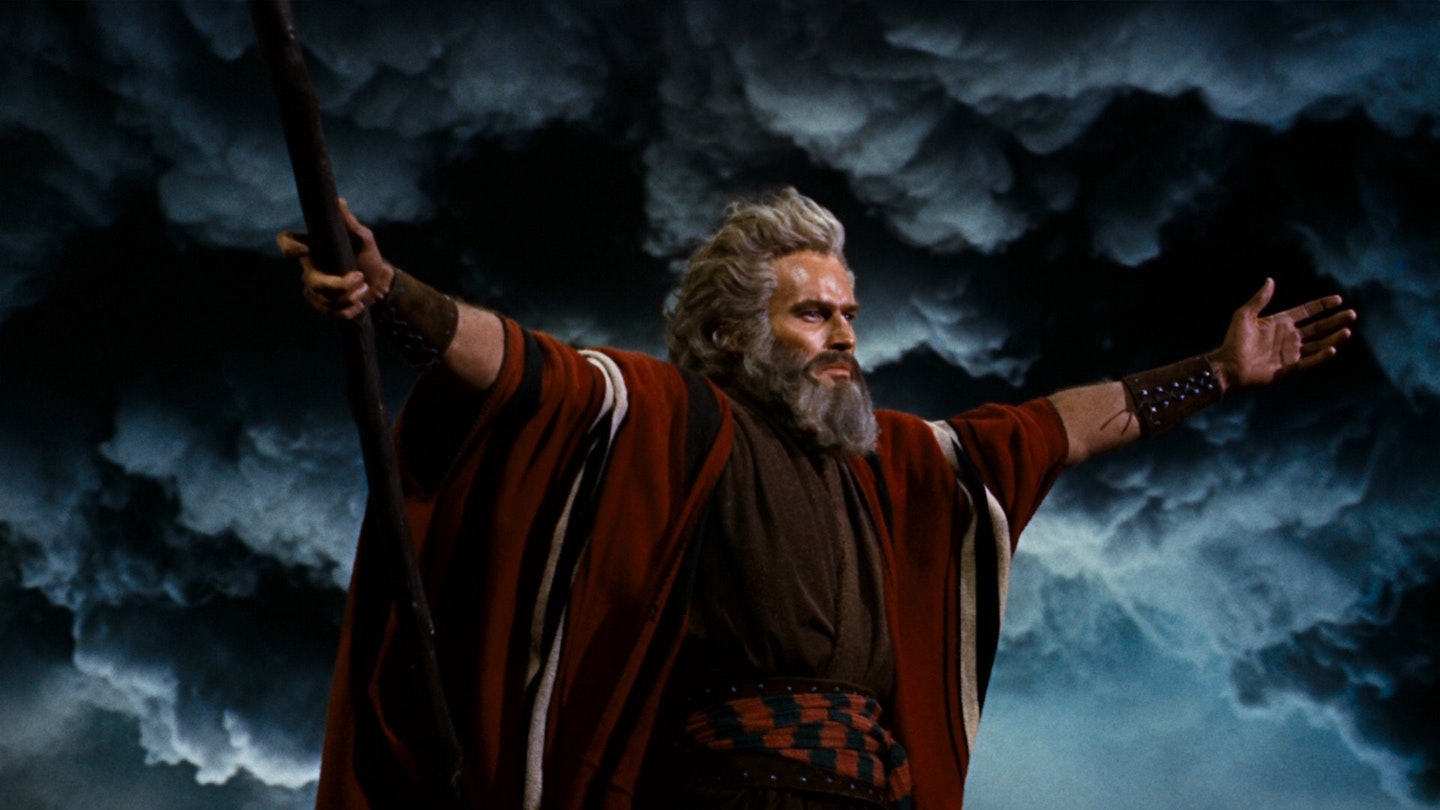The majority of people who complain about movies being too long simply have a poor attention span and are sitting in the movie theater thinking about what they’re missing on their phones or fixating on random nonsense instead of being fully immersed in what is happening onscreen. Worse, they have their phones on, regularly checking them throughout a screening instead of fully turning them off like they’re supposed to.
These complaints may sound like they’re coming from a 25-year-old fuddy-duddy, but the reason I believe that phones are a big part of the problem is that they’re a problem for me, too. I have to make a great concerted effort not to check my phone when I’m watching movies at home. I have to turn my phone off completely, as if I’m in an actual movie theater, and put it in a drawer just so the sight of it doesn’t tempt me. And I don’t just have to do this for four-hour epics like The Ten Commandments…this is necessary for movies as short as 80 minutes.

Source: Empire Magazine
Something you hear all the time in regard to “too long” movies is that they include scenes that “aren’t necessary.” An acquaintance recently told me she thought Florence Pugh’s character in Oppenheimer was not essential to the plot. While the scene where J. Robert Oppenheimer and Jean Tatlock have an affair could be cut without derailing the plot, it is significant that Oppenheimer had an intimate relationship with a communist, considering he’s being investigated by the McCarthyist government throughout the entire film. It is important to the plot because it gives context as to why his actions in his early life made him a victim of the Red Scare in the mid-50s.

Source: IndieWire
This seems to be a recurring theme observed with Gen Z film-watchers: they only want to see what is absolutely necessary in a movie, and nothing more. They see movies as a conduit for big flashy plot points instead of a visual medium that can evoke meaning without spoonfeeding the audience with on-the-nose text. We could blame this on CinemaSins and their insistence on pointing out plot holes, but at some point, the generation raised on CinemaSins needs to grow up and think for themselves.
Some cynics might claim that movies are just “media consumption” as much as anything else and that the ability to focus on a feature, whether it’s 75 or 275 minutes, rots your brain just as much as spending that time on social media...
Anyone who says or thinks this has never spent 275 minutes non-stop “doom-scrolling” on TikTok without a break.
While movie watching is not an inherently intellectual pursuit (for most people, at least) you’re bound to get more out of one movie than hundreds of short-form videos that are forgotten as soon as they are scrolled past. I’ve had more fun watching the worst movies ever made like Fateful Findings than I have on the best clips of Family Guy superimposed over iPhone gameplay. Watching movies during the time that you’re usually mindlessly scrolling can retrain your brain to focus on important details, plot points, and visual language that you’re not going to get on TikTok (unless said TikTok is 12 Angry Men split into 60 parts).
There are certainly parts of the “movies are too long” camp that have some merit. It's a no-brainer that a bad 3-hour movie is far more painful to sit through than a bad 90-minute movie. So, it’s a good thing that long movies that are getting released today like Killers of the Flower Moon and The Brutalist are of good quality, instead of the long painful Oscar-bait of the 1950s like The Greatest Show on Earth. The Brutalist even included an intermission which successfully made the length more tolerable for audiences. Today, studios aren’t willing to bank on mediocre epics because getting someone to sit through high-quality long movies is a hard enough sell. There’s a reason Francis Ford Coppola had to finance Megalopolis all by his lonesome: Bad and long doesn’t move product, as evidenced by its $14.3 million box office on a $120 million budget.

Source: The New Yorker
The movie model of the 2020s is surprisingly similar to that of the 1950s. Both eras are defined by a need to get people out of their homes and into the theater. The dawn of television in the 50s and the proliferation of streaming in the 20s have hurt movie theater attendance, hence the movies in both eras are longer and more epic. There always will be a big chunk of people who are willing to forego quality for convenience, staying home to watch poorly produced slop. In some ways, Amos N' Andy and straight-to-Netflix Lindsay Lohan movies are spiritual sisters.
Your aunt might be cool with watching nothing but A Christmas Prince, but are you? If you find yourself constantly complaining about movies being too long and wanting to change, you have a couple of options. If people dislike long movies in principle, they can easily look up the runtime of any movie in the world before they watch it to make sure its length is to their liking. You could literally only watch 90-minute movies for the rest of your days if you wanted, and I would have no problem with that because the complaints would end.
It’s never too late to fix your attention span, and if you spend a couple of short hours watching Hoop Dreams, Schindler’s List, Dr. Zhivago, The Sound of Music—or any of the lengthy classics mentioned (except for that dastardly 25th Best Picture winner,) I’m positive you won’t regret it. The only way to learn that long movies aren’t so bad is to see them for yourself.






